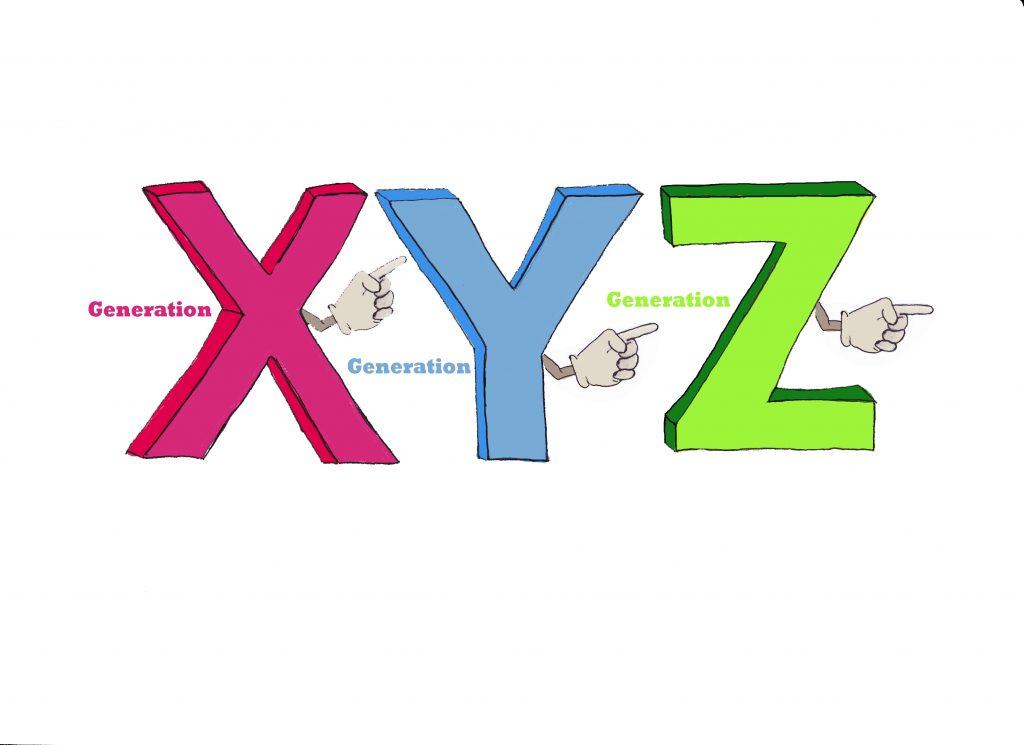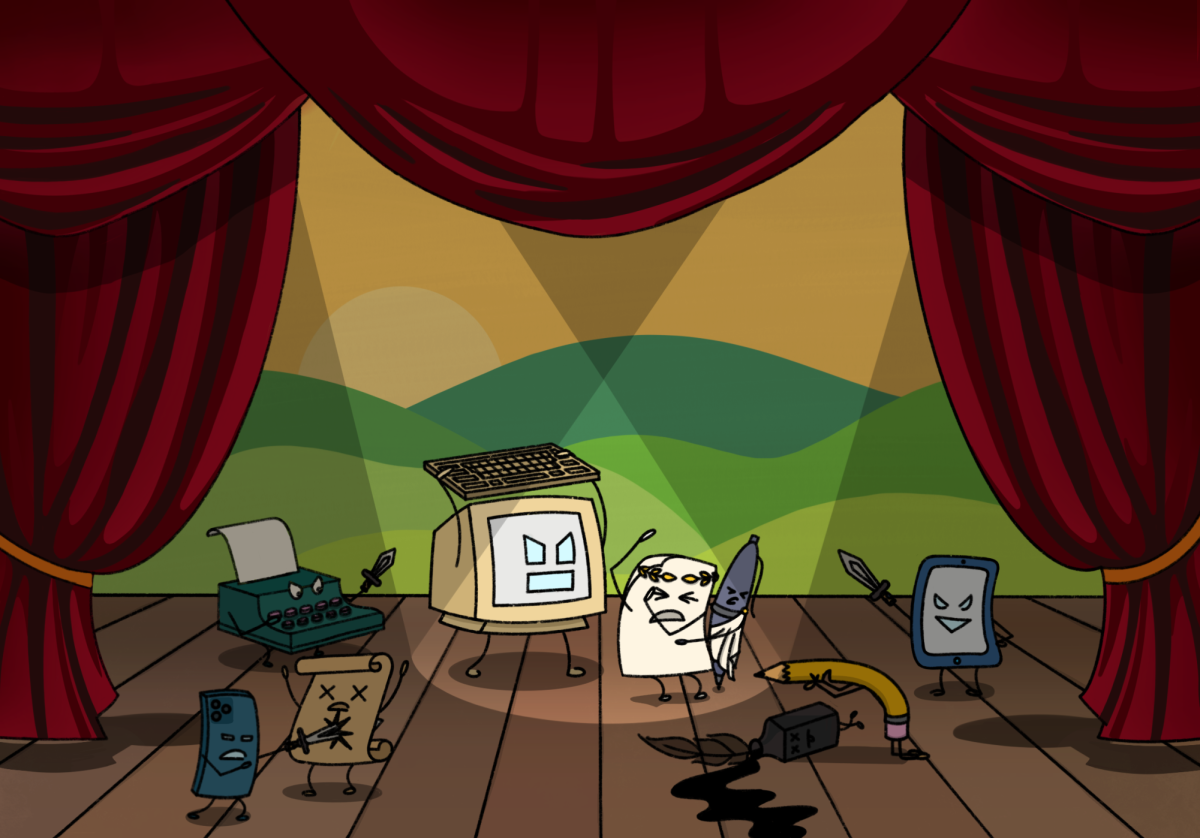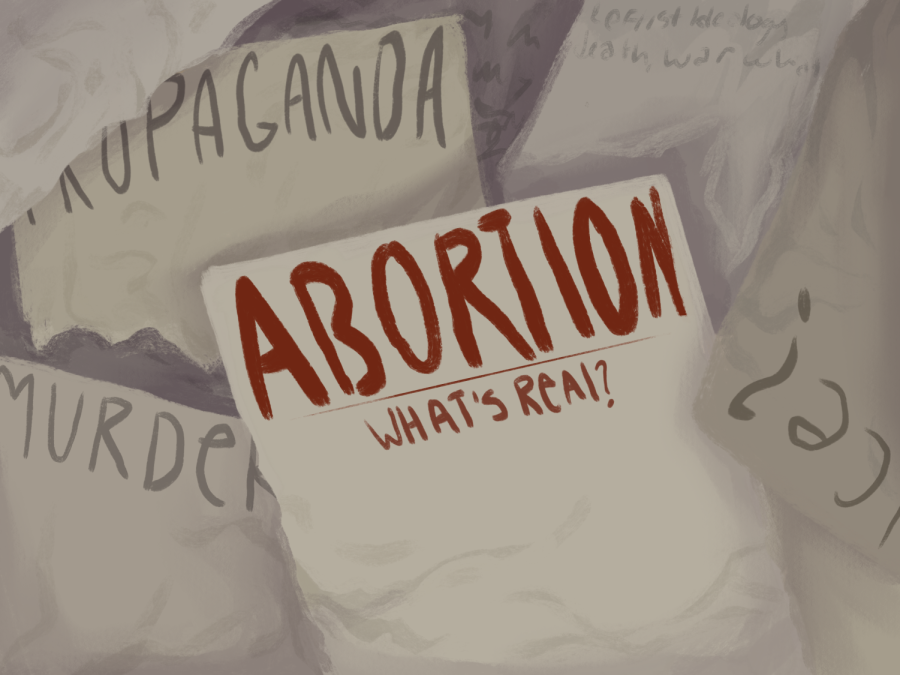It seems like the trend these days is to ridicule this generation of kids and dismiss them as technologically consumed individuals with short attention spans, so much so that there’s a growing phenomenon of “only 90’s kids will remember this” memes.

It seems like the trend these days is to ridicule this generation of kids and dismiss them as technologically consumed individuals with short attention spans, so much so that there’s a growing phenomenon of “only 90’s kids will remember this” memes.
Kids these days will never know about the good ol’ Disney sitcoms such as “That’s So Raven” and “The Suite Life of Zack and Cody.” Kids these days will know Hannah Montana only as the pixie haired girl twerking on stage. Kids these days carry around iPhones and Mac laptops as if they’re Tamagotchi toys, too busy texting to talk in person and will never see the true joys of a world rid of motherboards and gigabytes.
Kids these days.
But hasn’t “kids these days” always existed, just with a different issue to bring awareness about? We have always had a tendency to compare the present to the past, and reminisce about the good ol’ days. These kinds of sentiments appears repeatedly throughout history.
https://twitter.com/yourgirljoselyn/status/665819198925373440https://twitter.com/thereaganjames/status/666062118001610752https://twitter.com/justmeaudri/status/666022082321514496https://twitter.com/Leearigold/status/665142165832638465https://twitter.com/ezweezy/status/664982015599468544
In 1890, Frank Leslie’s Popular Monthly Volume 29 stated that in their generation, “conversation is said to be a dead art…Good talk presupposes leisure, both for preparation and enjoyment. The age of leisure is dead, and the art of conversation is dying.”
In 1907, The Journal of Education Volume 29 published that in “our modern family gathering, silent around the fire, each individual with his head buried in his favorite magazine, is the somewhat natural outcome of the banishment of colloquy from the school.”
In 2012, the New York Times published an article on the silence we endure from our constant texting and emailing. Within the article, a 16-year-old boy who was interviewed commented that he would like to learn how to have a real conversation.
In 2014, Gary Turk produced a YouTube short film spreading awareness about the negative effects of technology. He explored our tendencies of looking down at a bright, little screen and rarely talking to our friends face on, claiming that “this media we call social is anything but.”
These concerns are fundamentally the same, just with a different backdrop and controversial object. Less communication due to the popularization of magazines consumed the early 1900’s, just as texting has done to this current generation. If these kinds of generational conflicts have alway existed, why do we tend to act pretentious when comparing ourselves to other age groups?
People have forgotten how to speak. Literally. Text, email, messenger etc. But not talkie. Don't know what's wrong with this generation 🙂
— Lee Kirton (@LeeKirton77) November 13, 2015
The past is a peculiar concept as our brains tend to enjoy remembering the laughs we’ve had rather than the tears that were spilled and the hardships that were endured. In other words, the past is remembered abstractly, thus sugarcoated and prolonged.
What do I mean by “prolonged”? According to the Reminiscence Bump, we remember times of change (especially in excitement) as lasting longer than those spent in static. We remember in greater details of our first kiss and first date, but rarely remember the times when we sit in our rooms in boredom. Times of change generally occur most frequently and intensely between ages 10 to 30 and these moments often define your identity, as well as characteristics of what makes you you. So as we enter adulthood, we carry with us the better memories of that “bump” period.
A movie from that period or a Beatles’ song released during that time holds much more impactful and emotional grounds when you’re older because they bring you back to the memories of the past.
Due to these selective thoughts, the past is always painted in bright colors where things always seemed better then than they are now. So it’s only natural to believe that our pasts are better than the kids’ presents, and therefore, any kind of deviations from that, whether slight or grand, should be met with concern and protest.
This was the iPhone of my generation pic.twitter.com/skXgfM4vfZ
— DAD (@ezweezy) November 13, 2015
However, society will progress. It’s inevitable. No matter how hard you try, you can never exactly replicate the past. People will continue moving forward, evolving and developing new beliefs and technology. If we continue to criticize whatever progress we see, our current case of which would be technological advances, because the environment we grew up in has always been ‘better’ (“better” of course being subjective), then we will become fixated on one limited interpretation of an ideal society and perpetuate this loop of “my generation is better than yours.”
You only think your generation is better because your brain chooses to remember the good moments rather than the bad, and you turn those memories into trump cards to play as the younger generation. The books today are no more or less creative than yours were during your time. The music today is no more or less meaningful than those created in the past.
You can choose to remember Led Zeppelin’s more meaningful songs and use those to compare to Justin Bieber’s “Baby, baby, baby, oh” and discourage this generation’s music enthusiasts by labeling them as sensationalists, but forget that Led Zeppelin had a similar kind of theme as Bieber in “Babe I’m Gonna Leave You.” We only see what will further solidify our stances.
The same concept applies to generational judgments. It’s easy to pick and choose the rights of the past and compare them with the wrongs of the present, however, it doesn’t make them any more valid.
People have forgotten how to speak. Literally. Text, email, messenger etc. But not talkie. Don't know what's wrong with this generation 🙂
— Lee Kirton (@LeeKirton77) November 13, 2015
Our society is constantly changing. And when matters change, we tend to hold onto the past. It’s the same reason why it’s hard to let go of a relationship after a breakup. When things shift beneath our feet, we find comfort in what’s stable. In this case, it’s the malleable society we live in and the strength one finds in remembering how things were in the past. However, just because society doesn’t adjust to your beliefs doesn’t mean the generation is worse (or better, for that matter).
Whether you’re from the Baby Boomer Generation, Millennial Generation, Generation X or Generation Z, you’re perspectives are finite. Your generation is neither superior nor inferior to the generation that precedes or follows you.
As George Orwell stated, “every generation imagines itself to be more intelligent than the one that went before it, and wiser than the one that comes after it.”
“Kids these days” have always existed; only the tone is different from the previous and will be different from the next.













